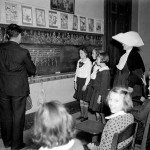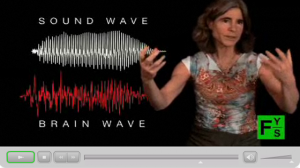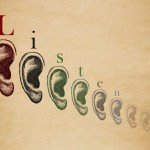Will music make my child smarter?
Hello Dear Reader
Today we are going to do things a little differently. Instead of commenting on a new paper, my usual format, I have written a short opinion piece in response to something I read in a UK newspaper a few weeks ago.
Please bear in mind of course that this is just one person’s response, and opinion. And it’s just a taster of the debate! There is much more coverage in my book, for anyone who wishes to know more. OK, on with the words….

Access to music education has been on the decline, at least in UK schools, for years. I have experienced this regression from many angles: as a child who received free music lessons that my loving father later had to find the money to subsidize, as a music teacher who was forced to teach bigger and bigger classes, and as an academic who has attended debates in the Houses of Parliament surrounding the proposed cutting of music lessons from mainstream curricula.
These debates focus on the value of music education. Rightly or wrongly, questions center on the issue of whether music lessons carry any wider benefit for child development, and here we risk venturing into the dangerous waters of pop psychology.
Dr Louisa Diller (heads BMJ Group Research and Development) recently wrote a short Guardian piece ‘Will music make my child smarter?’ Like many similar articles the author wisely and quickly dismantles the larger media-driven idea of this so-called ‘Mozart Effect’ but in so doing states:
“… what happens if you encourage your child to play an instrument? According to Glenn Schellenberg, professor of psychology at the University of Toronto, who studied the link between music lessons and higher achievement at school, it won’t make much difference”.
I don’t pretend to know your immediate reaction to these words, Dear Reader, but this kind of claim struck me as too general in tone and fundamentally wrong. It may also be potentially damaging when we consider the way that many government policy makers conceptualize the value of music education.
The claim that encouraging a child to make music will make little difference to their education misrepresents the conclusions of Professor Schellenberg’s research into music and child development.
 In the last decade Schellenberg has repeatedly questioned the idea that encouraging a child to take years of music lessons will result in a substantive increase in their IQ – and I agree with him.
In the last decade Schellenberg has repeatedly questioned the idea that encouraging a child to take years of music lessons will result in a substantive increase in their IQ – and I agree with him.
But to simply brush aside the potential benefits of active musical involvement in childhood for development, based on this argument alone, is foolhardy.
First, we should acknowledge that music lessons can be invaluable for no other reason than the person learns about music. My music education comprised pretty typical group-based UK state public school tuition but I absolutely treasure the fact that I can pick up my guitar and play whenever I want.
My musical ability in terms of performance may be limited after years of irregular practice but music gives me an outlet, a passion, and inspiration.
Putting aside the direct benefits of musical skills, why would musical education promote more general abilities? In You Are The Music I argue that music may be defined as a ‘super skill’ because learning to play an instrument or sing recruits so many brain areas including auditory, visual, motor, emotion and executive systems.
Perhaps the best way to demonstrate the impact of music making on development is to view the cascade in benefits that you see from training only one of these areas, the auditory system.
 Professor Nina Kraus and her research group has published many studies demonstrating how musical training is associated with a sharper brain response to sound, a more reliable neural representation of sound, and an improved ability to detect fine changes in sound, particularly in a noisy environment.
Professor Nina Kraus and her research group has published many studies demonstrating how musical training is associated with a sharper brain response to sound, a more reliable neural representation of sound, and an improved ability to detect fine changes in sound, particularly in a noisy environment.
She summarises her findings in the phrase ‘music for a smarter ear’. These abilities relate to real education issues such as following instruction in a busy classroom and building language understanding.
 So when we look at hearing following music making, the cascade of benefits falls into place. Kraus repeatedly reports an association between years of music making and the benefits above, suggesting that the relationship is causal. Musical children benefit from an increase in related abilities such as speech processing, language learning and reading, which can be traced back to aural skills and that begin as early as after 6 months of active music making.
So when we look at hearing following music making, the cascade of benefits falls into place. Kraus repeatedly reports an association between years of music making and the benefits above, suggesting that the relationship is causal. Musical children benefit from an increase in related abilities such as speech processing, language learning and reading, which can be traced back to aural skills and that begin as early as after 6 months of active music making.
As adults, people with a background of music lessons and active music making show enhanced ability to pronounce a second language and hold sounds in memory (my own pilot work on this latter topic, memory, has convinced me it there is cause for much more study in this area).
Even more encouraging, older adults who have not played or sung for decades show heightened fine-grained hearing compared to people who never made music as a child.
My conclusion therefore, is that active music involvement in childhood (in fact, any age) absolutely makes a difference. It will not boost IQ, but it will contribute to the development of a multitude of skills that make a difference to a child’s experience of education and that as an adult they can then go on to reap for a lifetime.
Happy music making!

One Comment
Buck
I’m a professional computer programmer. I’m also a classically trained viola player. I believe I’m a good programmer because I can detect patterns. Is my pattern detection better because I’m a violist, or am I a violist because the pattern gene is co-resident with the music gene? Obviously, n=1 and I’ll never be able to answer that, but it’s interesting that while I never had any university level maths, I do a creditable job at the maths involved in my adult-found hobby of amateur (ham) radio; specifically, microwave radio. I like to build them from scratch. Everyone who knows me will have heard me describe myself as a simple viola player, and that’s how I tend to think of myself.
Music first, science second.
It may not be cause and effect as a universal human experience, but it is for me.